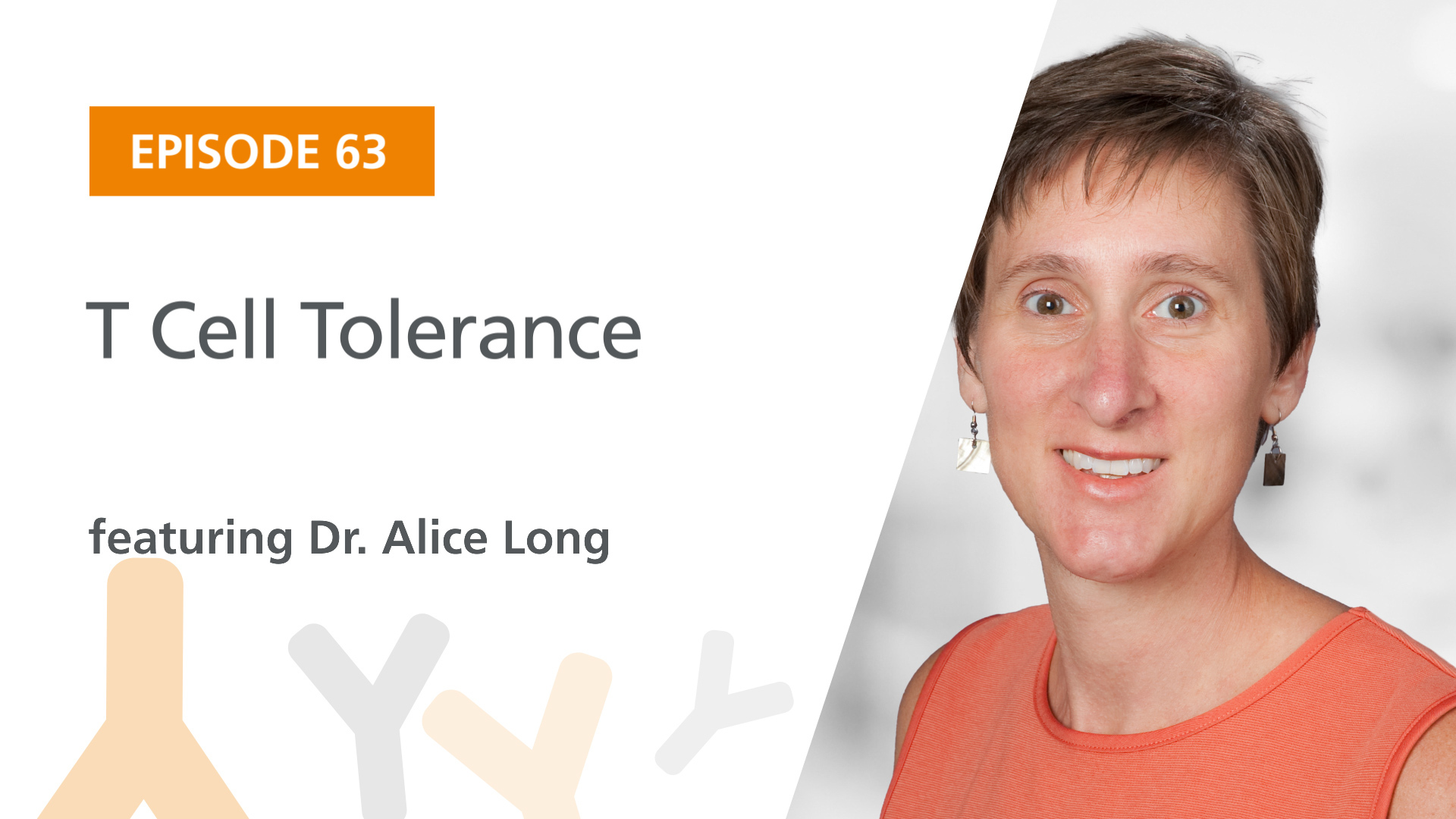
Guest:
Dr. Alice Long is an Associate Member and Principal Investigator at Benaroya Research Institute at Virginia Mason, where her lab focuses on discovering how tolerance is lost in human autoimmunity and how therapy can restore tolerance.
Featured Products and Resources:
- Attend IUIS 2023, the world’s leading conference in the field of immunology.
- Keep current with Immune Regulation News
The Immunology Science Round Up
Insights into B Cell Selection – Antigen-presenting autoreactive B cells play a crucial role in tolerizing T cells and suppressing tissue-specific autoimmune inflammation.
A New Perspective for IBD Management – Researchers discovered a polymorphism encoding a defective fusion protein that is correlated with inflammatory bowel disease severity.
A Neuropeptide in Type 2 Immunity – Scientists show that neuromedin U programs eosinophils to promote mucosal immunity of the small intestine.
Intestinal Antigen Recognition and Humoral Immunity – A new study shows that antigen receptor signaling and cell death resistance control intestinal humoral response zonation.
Image courtesy of Alice Long


